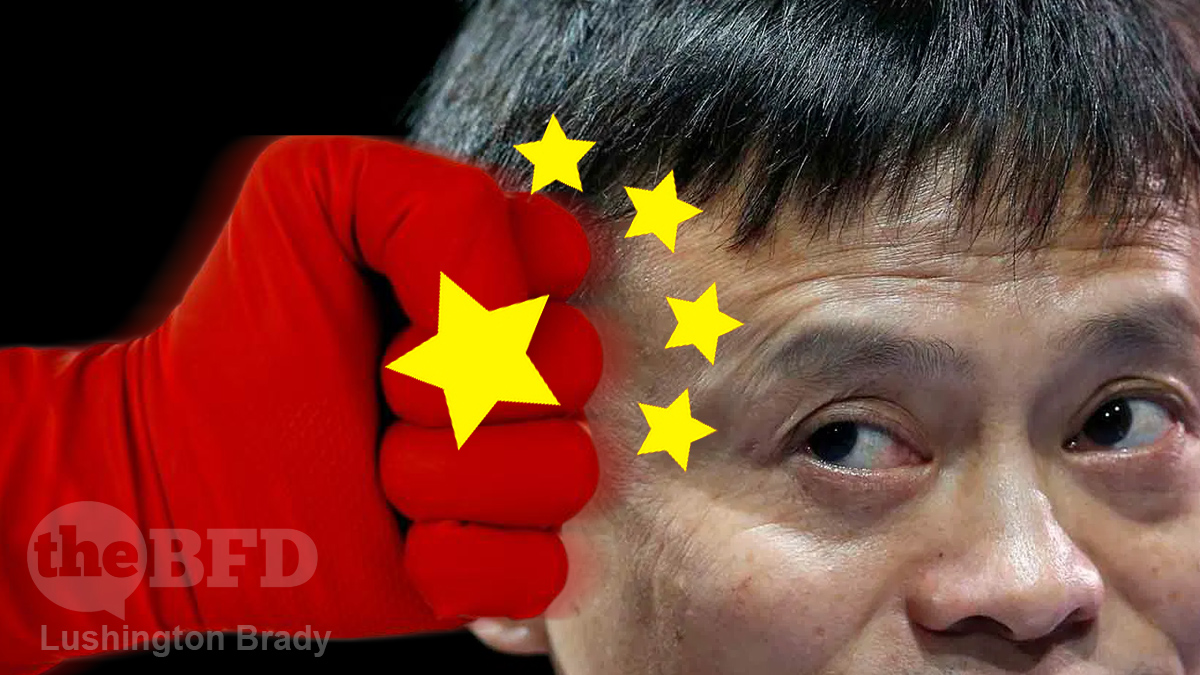Table of Contents
Lest anyone doubt exactly what they are dealing with if they choose to hold their hand out for China’s gold, the Chinese regime periodically shows the world in no uncertain terms just who they are.
Anyone who deludes themselves that China is “opening up” ought to have been rudely disabused by the brutal displays of power on the streets and in the parliament of Hong Kong. If that wasn’t enough, then consider the fate of Fan BingBing, China’s most famous actress. In 2018, Fan was secretly detained for months, with no-one, not even her family knowing her whereabouts. Eventually, Fan reappeared, to offer a humiliating, old-school Maoist self-criticism.
“Socialism with Chinese characteristics” may give the impression of a capitalist free-for-all, but at heart it remains an iron-fisted communist dictatorship. Just ask Jack Ma.

Policy makers in Beijing shocked the investment world on Tuesday by suspending an initial public offering by Ant Group Co., a fintech company owned by billionaire Jack Ma — China’s second-richest man. The decision came just two days before shares were set to trade in a listing that attracted at least $3 trillion of orders from individual investors.
The timing of the decision showed once again that for Xi and the party, financial and political stability take precedence over ceding control of the economy — especially to a private company. In Beijing’s view, allowing the IPO to go forward could effectively give Ant too much sway over the financial system, posing broader risks that could ultimately undermine the party’s grip on power.
If ultimate control of a company lies with the state, it’s not a private company. It’s a socialist crony which is ultimately held on an unbreakable leash of state power.
“The party is flexing its muscle,” said Victor Shih, associate professor at UC San Diego and author of “Factions and Finance in China: Elite Conflict and Inflation.” “It’s saying to Jack Ma, you are going to have the biggest IPO in the world, but that’s not a big deal for the CCP, which oversees the world’s second-largest economy.”
While the party has ample tools to quash political dissidents, local officials have struggled at times to contain outbursts of anger brought on by bread-and-butter issues such as labor disputes, investment fraud, and environmental disasters. To mitigate any threats to the financial system or the party’s authority, Xi’s government has demonstrated over the past decade that it has no problem taking down billionaires and private companies.
This is the same issue at the heart of the conceit that Nazi Germany was not a socialist state. Revisionists like to point to the regime’s “privatisation” program, but the reality was that the state retained a tight leash on “private owners” and imposed strict production quotas. It was a socialist regime in name and practice.
China remains a communist regime in name and practice.
Chinese authorities have been stepping up oversight of private companies for several years. In 2018, the central bank identified Ant and other firms as financial holding companies, putting them under increased scrutiny because of their growing role in the nation’s money flows and financial plumbing.
That same year, regulators seized Anbang Insurance Group Co., which symbolized the recent era of mega-acquisitive Chinese companies, and imprisoned its former chairman for fraud. HNA Group Co. and Tomorrow Holding Co. were later taken over by the state or broken up, while China Evergrande Group in September was warned of a potential cash crunch that could pose systemic risks to China.
As former Australian deputy prime minister John Anderson recently said to Douglas Murray: “We should never have lost our understanding of the simple fact that a communist is a communist. In the end, a communist will behave as a communist does”.
If you enjoyed this BFD article please consider sharing it with your friends.









